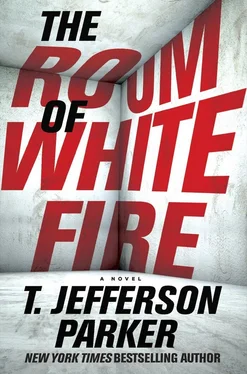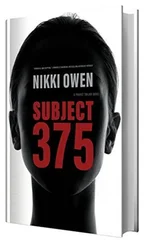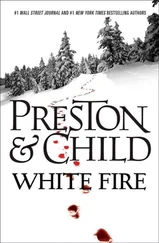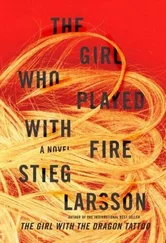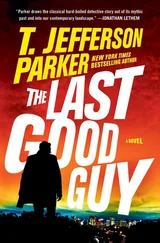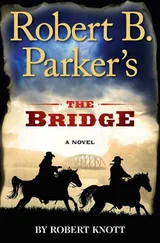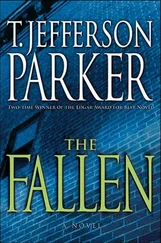“Don’t say her name again.”
“No, hell no. You win. But thank you. I understand you better now.”
The sun was a fat orange ball in the eastern sky. Below us, Interstate 15 traffic was humming along smoothly. Fallbrook came into view. A minute later I could see my hills and the thickets of oak and sycamore and the random network of narrow two-track roads that linked Rancho de los Robles together, then the house and the barn and the pond.
“Roland, you’ve impressed me today. I see that, after you’ve gotten Clay back, I might need you on my team again. Where you would have a chance to flourish, and become familiar with those treasures I mentioned.”
I ignored him. We came in low over the water. The rotor chop dashed the reflections of the willows and cattails on the banks. I saw my tenants sitting around the picnic table under the palapa, their five curious faces all tracking the approach of the shiny Sikorsky.
Spencer set the craft down softly. He worked a card from his wallet and wrote something on the back and gave it to me. He looked at me once again. “My Air Force friends? They called the action ‘smoke.’ Put me in the smoke, Mr. Ford. I love it there. Find Clay Hickman and lead me to him. It would be the best thing for everyone involved.”
What kind of crackpot paints his helo copper?” asked Grandpa Dick. “And what’s so hard about the truth?”
Breakfast time under the big palapa by the pond on Rancho de los Robles, all Irregulars present. Dick and Burt Short were the breakfast team most days, which meant scrambled eggs, sausage, bacon, ham, tortillas, and salsa.
“It’s a new book by a psychologist,” said Burt Short, giving me a flat look. “And that Sikorsky 434 turbine will set you back nine hundred and thirty thousand new.”
“A book about Operation Iraqi Freedom,” Lindsey Rakes said absently. The cuffs of her fine cowgirl shirt from the night before were rolled up, her hair lopsided from sleep, her sunglasses dark. Apparently she’d run the gauntlet of casinos between her lawyer and here without success. “Pass the tortillas.”
“Here you go, honey,” said Grandma Liz. “I can make you a Bloody Mary that might help.”
Lindsey stared at Liz but said nothing.
“Anyone wants to hike after breakfast let me know,” said Wesley Gunn. “I’m down to a hundred and fifty-seven days with both eyes.”
“I still think that Tijuana doctor I know could do you some good,” said Burt. “How about you skip the hike and I’ll drive you down for a consult?”
“All Mexican doctors are quacks,” said Dick.
“Of course they’re not,” said Liz. “Some are educated in America.”
“Illegally and for free,” said Dick.
“Don’t you two ever stop?” asked Lindsey. “You’re worse than a hangover. You are a hangover.”
Wesley Gunn regarded Burt from behind the very dark lenses of his prescription glasses. “Okay. Let’s go see the Mexican doctor.”
Burt set his coffee cup down and smiled. He’s a round-faced little man with a raspy voice and laugh. “Let’s finish breakfast and mosey south. I’ll call him.”
“Can I go?” asked Lindsey. “I don’t have anything else to do.”
I loaded up my plate and poured another cup of coffee. During good weather we spent more time here at the picnic table than in the cavernous dining room inside. I sent a text message to an acquaintance at the San Diego Union-Tribune to whom I had spoken frankly and on record about the shooting of Titus Miller. I asked him if he could get me an early copy of Hard Truth . He said he’d send the paper’s review copy along, but I told him I’d pick it up instead.
When my phone buzzed I stepped away from the picnic table to answer. The voice I wanted to hear most was Sequoia Blain’s. Wish granted. But I braced myself for the worst.
She sounded worried but said she was okay. Was with Clay in a motel in Ojai — a three-and-a-half-hour drive north from Fallbrook. Not sure why they were there. Not afraid, exactly, but she was worried because Clay was agitated and emotional and he was definitely coming off his meds. He’d been using her phone, but was secretive about who he was contacting.
She gave me the name of the motel and room number, and said Clay thought he was ready to meet me, but I had to call when I got there. In case he changed his mind. “He wants you to bring a voice recorder. Mr. Ford, you’re not just going to show up with the cops and arrest him, are you?”
My temper was rising and Clay was the target. His demands and evasions. Sequoia’s protective complicity was wearing thin, too. “If he hurts you I will.”
“Because he’s... breakable. You know what they did to him in that so-called hospital? Arcadia? They shocked him and drugged him for three years. He’s afraid no one will believe him. ”
I rallied my patience because I thought it would get me closer to Clay faster. “I’ll be there as soon as I can, Sequoia. Tell him I’m depending on him to protect you. Tell him very clearly.”
“You can’t take him back to the hospital. What are you going to do?”
I didn’t know the answer to that. But Sequoia was wrong: I could take him back to Arcadia. I’d contracted to do just that, so profession and compensation came to mind. The Hickman family apparently wanted him to stay in that swanky prison of a hospital — and as conservator, Rex Hickman was in control of almost every aspect of his son’s life. Legally, Clay was powerless. There was the very real possibility that Arcadia was still the best place for him. No power was granted to me except fulfilling the terms of my agreement with Arcadia, and a moral obligation to keep Clay Hickman from hurting himself or Sequoia or anyone else.
“I’ll hear him out,” I said.
“I want you to. But his mind changes fast.”
I grabbed my work travel duffel — packed and waiting under my bed — then drove fast to the Union-Tribune office in San Diego and picked up the swank readers’ copy of Hard Truth. On the cover was a moody black-and-white photograph of Briggs Spencer trotting handsomely beneath the blades of a helicopter. Resolution on his face. Gray hair tousled, and tie streaming, a blurred gallery of darkly overcoated men in the background, watching Spencer while he looks into the camera.
I hit Fallbrook Airpark an hour later, taxied Hall Pass 2 down the runway. As I climbed into the blue western sky I saw a white Range Rover and a black Dodge Charger sitting side by side on the far edge of the parking area, facing opposite directions. Two men leaned on the driver’s-side doors, looking up at me. They looked like cabbies waiting for fares. When I was out of their sight I cleared myself in all directions, dropped the Cessna into a steep descent, and buzzed the cars low and fast. One of the men clambered back into the SUV. The other, Alec DeMaris, leaned casually on his car and looked up at me, shaking his head. The airpark manager could have my hide for the stunt, but I didn’t care. I banked and buzzed them once again, then climbed steeply and set my bearings north.
An hour and nineteen minutes later I was touching down on a private landing strip two miles from Ojai. It was owned by a friend of Pete Bagnoli, who is one of my hundreds of confederates in the very loosely organized Private Investigators Group — which we affectionately call PIG. No dues, no officers; nothing but a not-easy-to-acquire directory of PIs who might be inclined to help one another. Quite a variety of characters. We meet once a year, in Denver, whoever can make it. Young and old, male and female. Most are working professionals, a few are amateurs, others no more than crackpots with stories to tell. But I’ve met hundreds of PIs at the Denver confabs, everyone from marathon runners to skydivers to master marksmen to salvage divers. Some are vets like me, and plenty are former cops and deputies. Some are geeky tech wizards. Two collect stamps competitively.
Читать дальше
